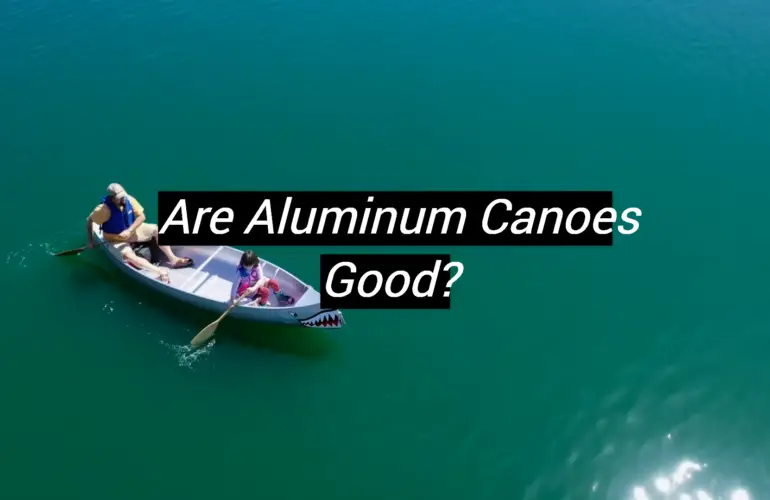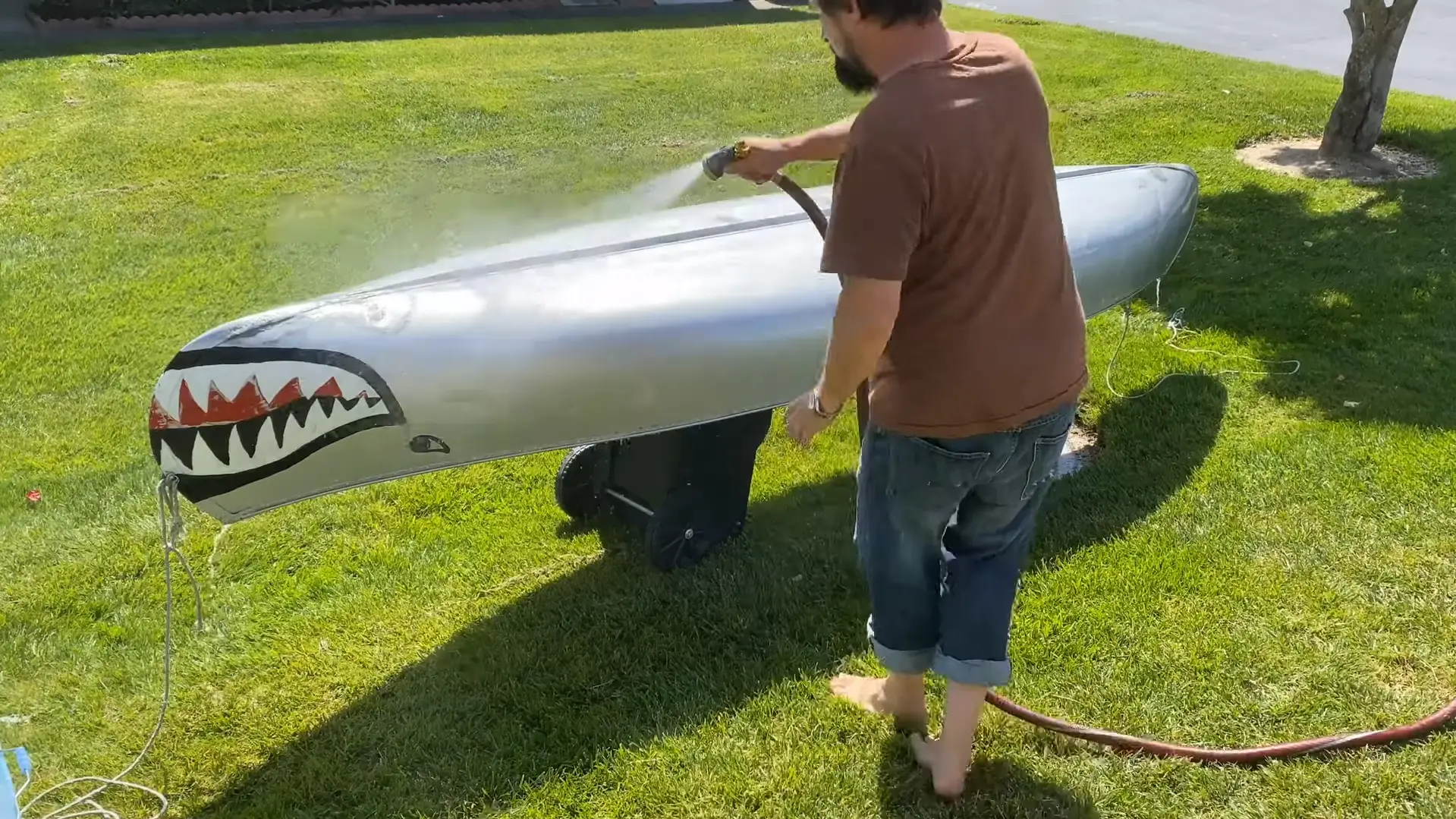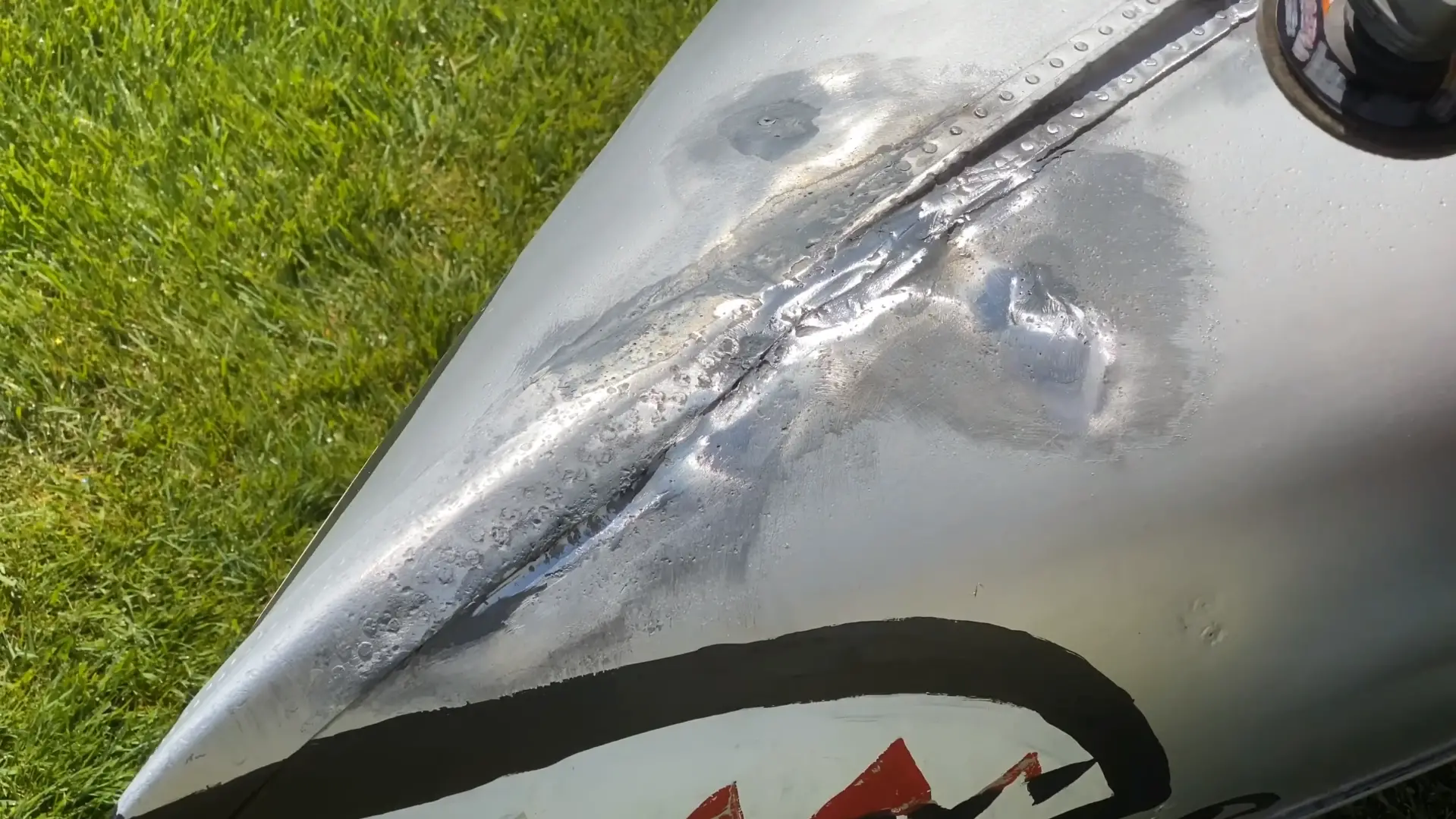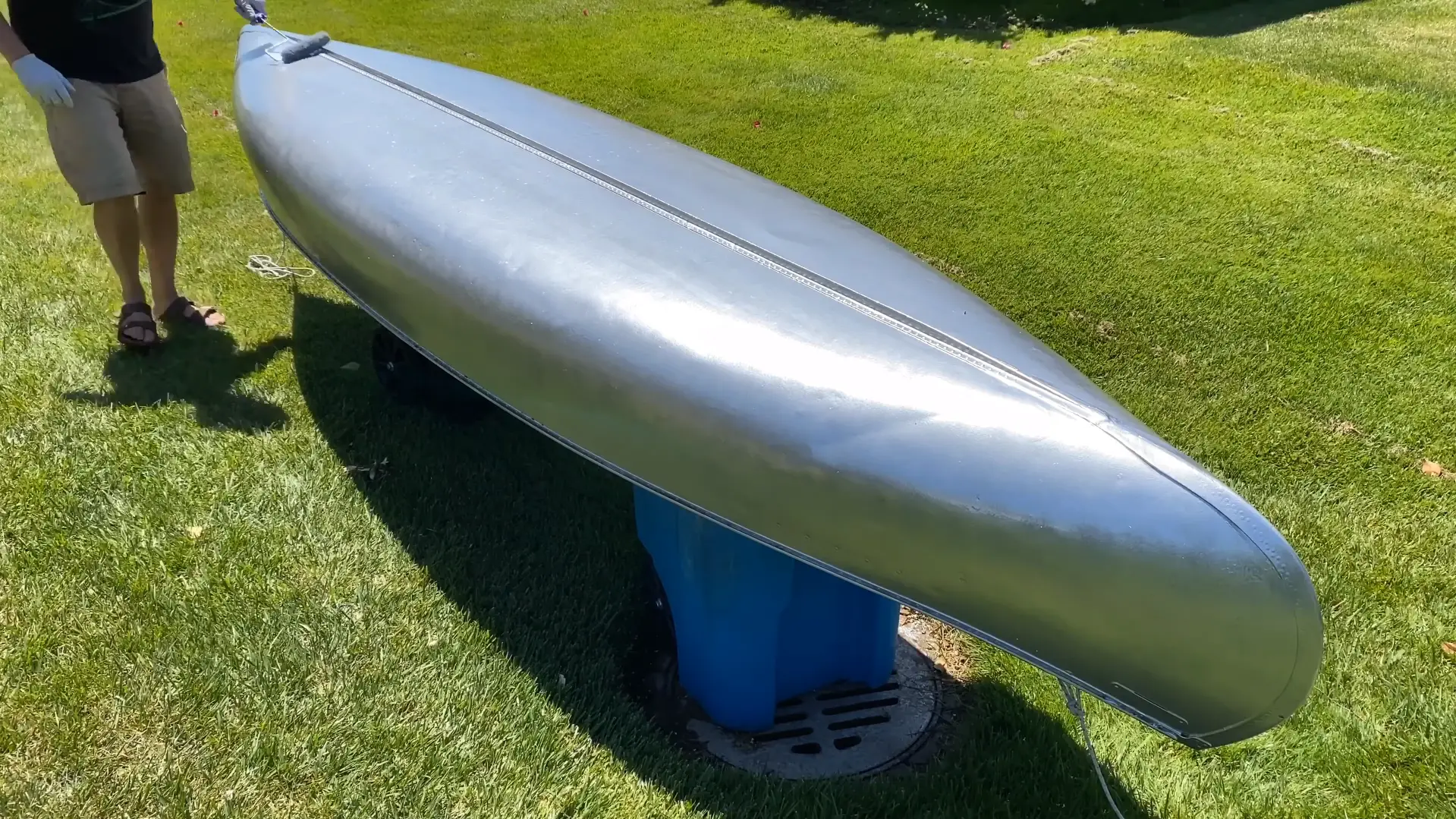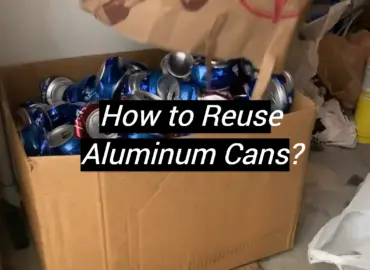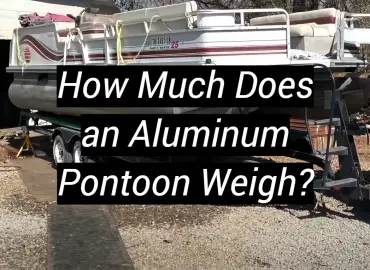When it comes to purchasing a canoe, there are several options to consider. From materials to size to price, it can be really overwhelming to choose a good canoe. One of the most widely used in canoe fabrication material is aluminum. But are the canoes made of it good? In this blog post, we will explore the benefits and drawbacks of aluminum canoes to help you make an informed decision.
Aluminum Canoes: Advantages and Disadvantages
Canoes can be made from different materials, such as fiberglass, wood, and aluminum. Aluminum canoes have been popular for many years due to their unique characteristics and properties. If you’re considering getting an aluminum canoe, it’s essential to understand its advantages and disadvantages.
Advantages of Aluminum Canoes
- Durability. This type of canoe is known as a really durable and long-lasting one. They can withstand rough waters, rocks, and debris without getting damaged easily. They are ideal for use on rivers and lakes that have sharp rocks and obstacles. Additionally, aluminum canoes are relatively low maintenance – they don’t require any special treatments or coatings, and they are resistant to UV rays and corrosion, which means they can last for decades. [1]
- Maneuverability. Aluminum canoes are not the most maneuverable compared to other materials, such as fiberglass or Kevlar, but they offer stability and are easy to control. They usually have a flat bottom and straight sides, which makes them ideal for beginners and those looking for a stable paddling experience.
- Low Maintenance. In comparison to other kinds of canoe aluminum ones need really little maintenance. They easily resist rust, which means that you don’t have to worry about paint or varnish peeling off like wooden canoes. You can keep your aluminum canoe looking new by washing it occasionally with soap and water.
- Affordability. When compared to other canoes, aluminum canoes are among the most affordable options available in the market. They are cost-effective, making them a great option for beginners who might be looking to get into canoeing without spending a lot of money. However, it must be stated that higher-end models can be more expensive depending on the features they offer. [1]
- Weather. Aluminum canoes are great for all-weather conditions as they don’t get damaged easily due to their durability and resistance to harsh weather conditions. They don’t absorb water and can withstand extreme temperatures and conditions, making them perfect for use in colder climates.
Disadvantages of Aluminum Canoe
- Noise and Vibration. One of the most significant drawbacks of aluminum canoes is that they are loud. Every time you hit a rock or paddle against the side, you will hear a loud clunking sound. This noise can be a nuisance and take away from the peacefulness of your paddling experience. Additionally, aluminum canoes tend to vibrate, which can make them uncomfortable and difficult to steer.
- Poor Heat Retention. Another disadvantage of an aluminum canoe is that it does not retain heat very well. This means that if you are paddling in cold water or weather, you may feel colder and more uncomfortable than you would in a canoe made of a different material. Conversely, if you are paddling in hot weather, the metal can get uncomfortably hot, making it difficult to even touch the sides of the canoe.
- Susceptible to Dents. While aluminum is generally known for being a durable material, it is actually quite susceptible to dents. Even a small rock or bump against a shore can cause a noticeable dent in the canoe. While these dents are not usually a structural issue, they can be unsightly and compromise the performance of the canoe.
- Poor Maneuverability. Aluminum canoes tend to be bulkier and more heavy in comparison to some other materials. That’s why it can be difficult to maneuver and control the canoe, especially in rapids or other fast-moving water. Additionally, because of the weight, these canoes can be more challenging to transport and launch, especially if you are paddling solo.
- Not Eco-Friendly. Finally, aluminum canoes may be not the best option for environmentally conscious paddlers. The production process for aluminum is energy-intensive and can contribute to air and water pollution. Additionally, if the canoe is not recycled properly at the end of its life, it can end up in a landfill where it would take years to break down.
In conclusion it is important to state that this type of canoe has both advantages and disadvantages and you should consider them before buying it. They are sturdy, require little maintenance, and are affordable, and because of it they are really popular among paddlers. However, they tend to get cold in winter, are loud, difficult to repair, and not ideal for solo paddlers.
So, if you’re looking for a quieter canoe that is safe to use during thunderstorms, or you’re eco-conscious, an aluminum canoe may not be the best option.
Aluminum Canoes or Fiberglass Canoes – Which to Choose?
Aluminum and fiberglass canoes are probably the most widespread types of canoes in the market. When deciding between these two, there are several factors that you should consider.
- Durability. Durability is an essential factor when choosing a canoe. It is known that aluminum canoes are strong, and they can withstand wear and tear better than fiberglass canoes. They are more resistant to impact damage, making them suitable for rough waters. Fiberglass canoes are less durable and need to be handled with care. They can easily get scratched, and the scratches can weaken the structure of the canoe over time. [2]
- Maintenance. Maintenance is also an important factor to consider when choosing a canoe. Aluminum ones corrode more easily, especially if you use them in saltwater. They require regular maintenance to prevent rusting. Fiberglass canoes need less maintenance and are not prone to corrosion. However, they can be damaged by UV rays, which can cause the gel coat to fade and crack. [3]
- Weight. Another factor to consider is the weight of the canoe. Aluminum canoes weigh more than fiberglass ones, which makes them more challenging to transport. They require more effort to lift and maneuver, which can be a problem if you plan to travel long distances. Fiberglass canoes are lighter and more comfortable to transport, making them ideal for portaging.
- Cost. Cost is another factor to consider. Aluminum canoes are more affordable and can be a good option if you are just starting with canoeing and do not want to spend a lot of money. Fiberglass canoes are more expensive, but they are also more durable and require less maintenance in the long run. [3]
- Performance. Finally, performance is a factor to think about. Aluminum canoes handle rough water better than fiberglass ones and they are more stable as well. But, they are slower and less maneuverable. Fiberglass canoes are faster and more maneuverable than aluminum ones. They are ideal for paddling in calm and shallow waters.
Choosing between aluminum and fiberglass can be a daunting task as both materials have their advantages. While aluminum canoes tend to be more durable and maintenance-free, fiberglass canoes are more comfortable and lightweight. The purpose of the canoe and budget also play an essential role in the decision-making process. We hope this blog has provided you with valuable information that will help you decide which canoe material is best for you. So, whether you are an avid canoeist or a newbie looking to experience the wonders of the water, pick the right material to enjoy your outdoor adventure to the fullest. [2]
Aluminum Canoes and Kevlar Canoes: Comparison
Aluminum canoes are the most commonly used canoes. This is because they are economical and durable. Aluminum is a robust material and it is important to note that it can withstand harsh conditions, that’s why it is ideal for outdoor activities. It can hold up to 3 people comfortably, depending on their size. Aluminum canoes are also easy to maintain since they can last a long time withstanding exposure to the elements. The only downside to aluminum canoes is they are quite heavy, which means they might be challenging to maneuver in the water. [4]
Handling is another area where these two types of canoes differ. Aluminum canoes are more substantial and require more effort to move. This makes them suitable in areas with low water current, calm lakes, or ponds. On the other hand, Kevlar canoes are recommended when paddling in rough waters. The main point here is where you plan to canoe and what level of exertion you want to invest. [4]
Storing and maintenance is also an essential aspect when choosing between these two types. Aluminum canoes are durable and can withstand being tied in the open and exposed to harsh elements. They, however, require regular cleaning, especially if you use them in saltwater since aluminum is prone to corrosion. Kevlar canoes, on the other hand, should be handled delicately when storing since they are prone to absorb moisture and could form dents over time.
Choosing a canoe, whether aluminum or kevlar, ultimately depends on personal preference and easy access to the waterway. Aluminum is the go-to option for those who value durability and affordability. They are suitable for family fun and an excellent way to connect with nature. Kevlar canoes are the right choice for a more professional level of canoeing. They are faster and more lightweight, making them perfect for rough water conditions. They are an investment and demand appropriate attention while handling and storing. Ultimately, whichever type of canoe you choose, always remember that it’s essential to stay safe, maintain the canoe regularly, and have fun in the water!
FAQ
How stable are aluminum canoes?
The answer is a resounding yes! They’re sturdy, durable, and built to withstand rough waters without compromising on performance. In fact, they’re preferred by many paddlers for their ability to stay grounded and handle waves and winds. While there are some tradeoffs associated with owning an aluminum canoe, such as weight and customizability, their reliability, and affordability make them a popular choice. So, if you’re considering purchasing a canoe for your next adventure, don’t be afraid to consider an aluminum one.
Is aluminum or plastic canoe better?
Ultimately, the choice between aluminum and plastic canoes comes down to personal preference and the intended use of the craft. If you’re looking for something affordable and lightweight that is easy to maneuver by yourself, plastic is the best option. However, if you want something more durable and stable, aluminum may be the better choice. In any case, it’s important to assess your needs and consider all factors before making a final decision. With that said, happy paddling!
Will an aluminum canoe rust?
The short answer is yes, it can. However, it’s important to note that aluminum is a non-ferrous metal, which means it doesn’t contain iron. This is important because rust is the result of iron oxidizing in the presence of moisture and oxygen. Therefore, aluminum doesn’t rust in the same way that other metals do. Instead, it can corrode over time due to exposure to the elements.
The good news is that there are a few things you can do to prevent your aluminum canoe from corroding. One of the most important steps is to keep your canoe clean and dry. After each use, be sure to rinse the canoe thoroughly with fresh water to remove any salt or debris. Then, dry it off with a towel or allow it to air dry completely before storing it.
What is the strongest type of canoe?
Each type of canoe has its strengths as well as its drawbacks. In terms of strength, aluminum and Kevlar are probably the two strongest materials for building a canoe. When deciding on the right canoe material for you, you will need to consider your budget, the type of activity you want to use it for, and the time you are willing to put in maintaining it. We hope this blog post has helped you answer the question, ‘what is the strongest type of canoe?’ Now that you have a better understanding of the materials used for canoes, you can make an informed decision when purchasing your next canoe.
What material is best for a canoe?
Choosing the right material for your canoe is critical to having a fantastic experience on the water. Each material has its benefits and drawbacks, and understanding these can make the difference between a fun-filled day out and a frustrating experience. Before making your decision, consider the type of water you’ll be paddling in, your level of experience, and your budget. With this information, you’ll be able to select the perfect material that will make your canoeing experience unforgettable.
Useful Video: Grumman aluminum canoe restoration. Shark mouth nose art paint job to honor our veterans.
Conclusions
After examining the pros and cons of aluminum canoes, it is clear that they are an excellent option for many paddlers. Not only are they durable and low-maintenance, but they are also lightweight and affordable. While they might not be the quietest or warmest option, they are still a great choice for those who want to enjoy the water without breaking the bank. So, are aluminum canoes good? Absolutely!
References:
- https://www.gilisports.com/blogs/canoe-expert-advice/aluminum-vs-fiberglass-canoes#:~:text=Both%20aluminum%20and%20fiberglass%20canoes,paddler%20increased%20durability%20and%20stability.
- https://boatinggeeks.com/aluminum-canoe/
- https://kayakguru.com/aluminum-vs-fiberglass-canoe/
- https://gorp.com/aluminum-vs-kevlar-canoes/

